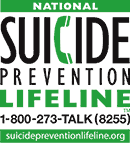Defending Public Safety Employees' Retirement Act
The IAFF recently sent out an email regarding the Defending Public Safety Employees’ Retirement Act. The IAFF email said: "After several years of gridlock, Congress enacted legislation in 2015 to correct inequities and close loopholes in the Pension Protection Act of 2006. Specifically, early withdrawal penalties for employer-based retirement savings for many fire fighters will be eliminated as of January 1, 2016. Under the Defending Public Safety Employees Retirement Act of 2015, public safety officers who separate from service at age 50 can immediately begin withdrawing funds from all employer sponsored retirement savings—both defined benefit and deferred compensation—without penalty."
The legislation the IAFF is referring to has to do with a 10% tax, or "early withdrawal penalty" that is generally charged by the IRS when individuals take distributions from a retirement account before a certain age. The age limit is different (lower) for police officers and firefighters. This legislation has to do solely with taxes collected by the IRS.
The 10% penalty now does not apply to a public safety employee who has separated from service after attaining the age of 50.
This law change has no impact on the monthly benefit that FPPA members do or will receive from an FPPA-administered retirement plan. There was already no early withdrawal penalty (10% tax) for receiving monthly benefits after attaining age 50 from a defined benefit plan or for benefit distributions that are part of a series of substantially equal periodic payments after attaining age 50 from a defined contribution plan. The new law no longer requires that distributions that are not part of a series of substantially equal periodic payments from a defined contribution plan after attaining the age 50 be subject to the early withdrawal penalty (10% tax).
The FPPA Statewide Defined Benefit Plan and Statewide Hybrid Plan do have actuarial reductions for early retirement for defined benefits paid prior to age 55. This reduction is a plan design element implemented under state law and is not affected by the change in federal law.
Governing Board
Governing Documents
FPPA
- About FPPA
- Address & Directions
- Contact Us
- Employment Opportunities
- FPPA Overview
- Glossary of FPPA Terms
- News and Video
- Organizational Chart
- Our Vision & Mission Statement
- Participating Employers (This link will direct you to the Annual Report | Statistical Section.)
- Public Records
- RFP

National Suicide Prevention Lifeline
Are you in a crisis? Struggling emotionally and need to talk to someone?
Call the National Suicide Prevention Lifeline or chat online.
It's free and confidential.
(800) 273-TALK (8255) • suicidepreventionlifeline.org
